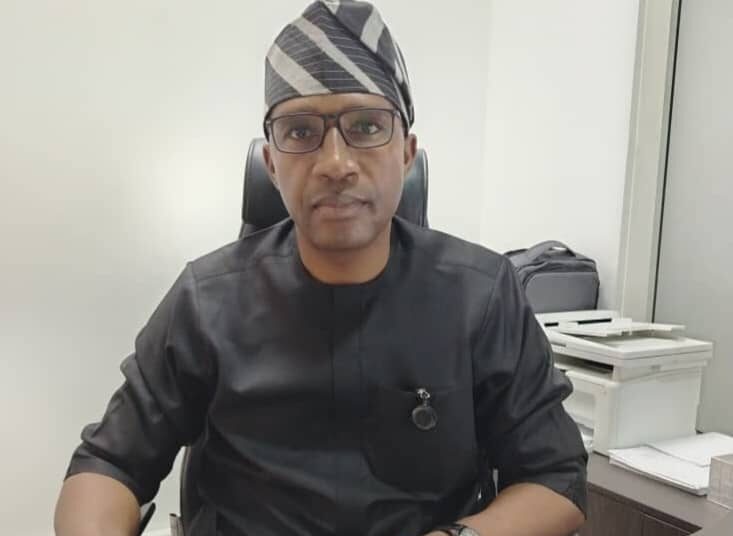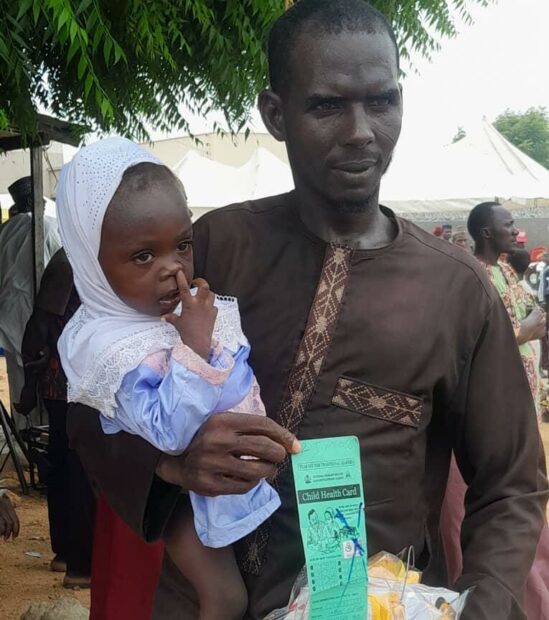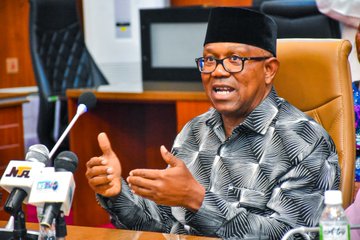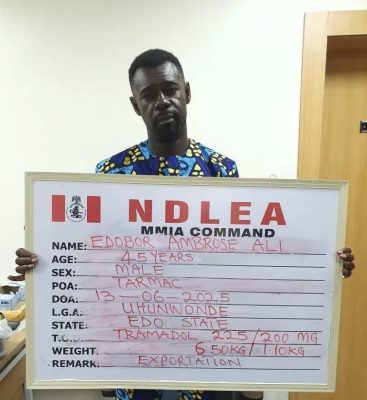
Why Data Is Vital for Nigeria’s Health System
In a recent interview, Otse Ogorry , Country Director of the Palladium-led Data.FI project, emphasized the importance of quality data , digital tools , and local innovation in building a stronger health system in Nigeria.
He also shared insights into how the government’s National Enterprise Architecture for Digital Health in Nigeria could transform the way health services are delivered—by ensuring interoperability , efficiency , and patient-centered care .
“The Nigeria Digital Health Initiative is a welcome development,” he said.
“It shows the government’s commitment to building a unified, scalable health information system.”
Ogorry believes this framework will help improve data exchange , support healthcare workers , and ultimately deliver better outcomes for patients .
The Role of Digital Infrastructure in Health Reform
At a stakeholders’ workshop organized by the Federal Ministry of Health in Abuja, experts gathered to discuss how Nigeria can build a modern, efficient, and inclusive health system.
Ogorry pointed out that while the government is making progress, it cannot do it alone.
“That’s why we see value in bringing together donor partners, state governments, private sector actors, and local innovators to strengthen our systems.”
One major highlight at the event was the government’s focus on modular architecture and open standards —a direction already being taken by projects like LAMISPlus , an electronic medical record (EMR) system supported by Data.FI .
LAMISPlus: A Nigerian Innovation That’s Already Working
LAMISPlus is a homegrown platform originally built for HIV programs. Over time, it has expanded to include modules for tuberculosis , hepatitis , and other health conditions.
Unlike rigid systems, LAMISPlus operates like a house with multiple rooms—each room representing a different service or disease module.
“Imagine a house with 20 rooms but only five are in use now,” Ogorry explained.
“As new needs arise, we simply open more rooms without tearing down the entire structure.”
This modular design allows the system to grow with the country’s evolving health needs.
Transitioning From Paper to Digital Records
One of the biggest challenges Nigeria faces is its reliance on paper-based health records .
This outdated method leads to lost files, errors in patient history, and fragmented care across hospitals.
Ogorry stressed that digital records offer a better solution:
“A patient should not have separate files for malaria, diabetes, and hypertension.”
“With digital systems, doctors get a full picture—making diagnosis and treatment easier.”
He cited examples in cities like Abuja , Lagos , and Port Harcourt , where some hospitals are already paperless and using digital tools effectively.
Addressing Infrastructure Challenges
Despite concerns about electricity access , internet connectivity , and digital literacy , Ogorry remains optimistic about Nigeria’s digital health future.
He noted that even in areas with poor power supply, clinics can use solar energy and inverters to keep systems running.
“Yes, it’s capital-intensive—but it’s necessary for sustainable healthcare.”
On internet access, he highlighted ongoing efforts to expand submarine cables and telecom coverage across the country.
“Digital literacy is growing. Look at how Nigerians engage with social media—it shows readiness for change.”
Palladium/Data.FI Ready To Support Government Rollout
Palladium’s Data.FI project has been supporting over 600 health facilities across 17 states since 2020.
The team includes local DevOps engineers , analysts , and community contributors who continuously improve the system.
Ogorry reiterated that LAMISPlus aligns well with the goals of the National Digital Health Architecture , calling it a “low-hanging fruit” the government can easily scale up.
“We are ready to collaborate with the Federal Ministry of Health to roll out the NDHI successfully.”
What Has Data.FI Achieved in the Last Three Years?
Since 2019, Data.FI has worked closely with the Federal Ministry of Health , NCDC , and several state governments—including Edo , Adamawa , Lagos , and Osun —to support national HIV, TB, and public health programs.
During the COVID-19 pandemic , the project helped set up Situation Rooms in various states, which enabled real-time data tracking and decision-making.
They also developed a geospatial tool used during vaccination campaigns and outbreaks like Lassa Fever in Edo State in 2024.
Other achievements include:
- Supporting the National OVC (Orphans and Vulnerable Children) System (NOMIS)
- Building visualization dashboards for health officials
- Expanding EMR systems beyond HIV into broader health services
Call to Action: Share Your Thoughts!
What do you think about the Nigeria Digital Health Initiative ? Do you believe strong data systems can truly improve our healthcare delivery?
💬 Leave a comment below and join the conversation on Nigeria’s health transformation.
📢 Don’t forget to share this article to spread awareness about the role of data and digital tools in building a better healthcare system.















Be the first to leave a comment